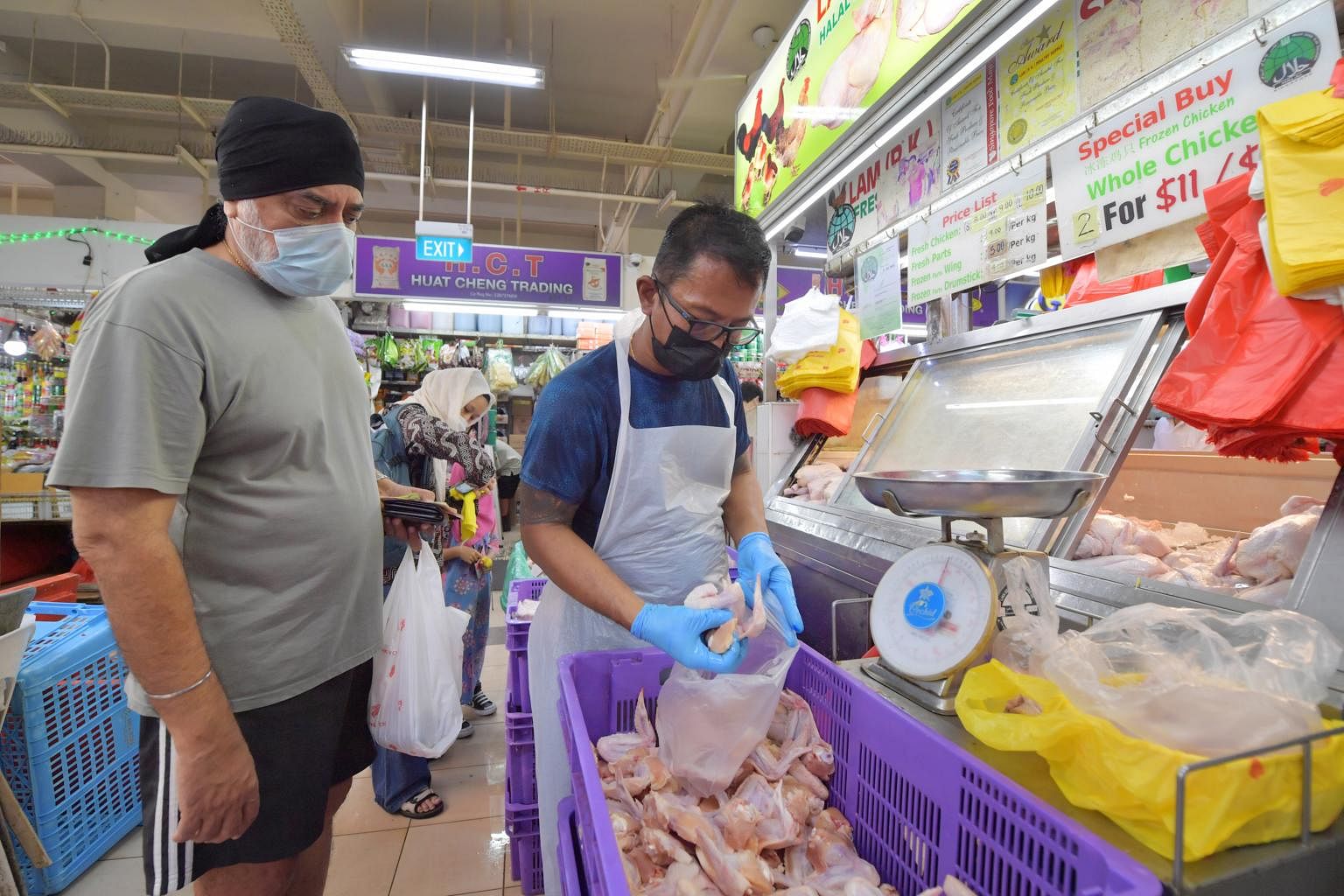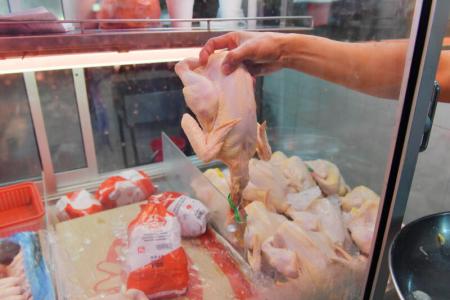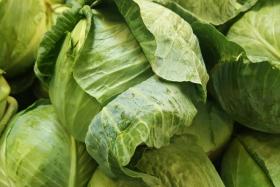Chicken still available at Singapore markets 1 week after Malaysia export ban
One week into Malaysia's chicken export ban, raw chicken can still be found at wet market poultry stalls here, though stocks are lower than usual.
At wet markets The Straits Times visited on Wednesday (June 8) morning, including 216 Bedok Food Centre and Market and Ghim Moh Market and Food Centre, poultry stalls that mainly stocked fresh chicken were closed.
Stall owners who had spoken with ST last week said they would likely keep their stalls closed until the ban was lifted.
But chicken still remains on the menu.
Over at Geylang Serai market, poultry stalls were still in business, selling chilled or frozen chicken. Those that sold chilled chicken, which can typically last about two weeks in storage, said that the current supply was likely to last one more week.
Mr Fabian Lim, 62, who works at Lam P.K Poultry Supply at Geylang Serai market, said: "I still have supply, but it is old stock, which has probably been chilled for a week. I think chilled chicken supplies will last only till the middle of this month. After that, I will sell frozen chicken."
His stall is currently selling about 20 per cent of their usual supply.
Mr Husni Hashim, 56, owner of Muhamad Ali Fresh and Frozen Meat Supplier at Geylang Serai market, said he had switched to selling frozen chicken, since fresh chicken was no longer available.
He said: "I realised my customers do not mind if my chicken is frozen or fresh; so long as they want to eat chicken, they are willing to buy frozen chicken."
He added he was looking for alternative suppliers to get more frozen chicken stock.
Mr Win Hong, 44, owner of Winthrop Hong Group at Ghim Moh Market and Food Centre, said his stall was still selling chilled chicken.
Mr Hong said: "Before the ban, the suppliers slaughtered more chicken to keep for us. We have our own way of keeping it fresh, like vacuum-packing.
"The local suppliers have also really done their part: when the ban was announced, they brought in more chickens to process so that we can continue selling."
He said his current supply would last through the month.
But it has not been business as usual for some suppliers here, who have halted production lines and asked staff to clear their annual leave since imports of fresh chicken from across the Causeway have stopped.

Malaysian authorities imposed a ban on chicken exports on June 1 amid a shortage of the product. Exports were halted so that prices and supply in the country could stabilise.
According to the Singapore Food Agency, 34 per cent of Singapore's chicken supply comes from Malaysia, with most being imported live for slaughtering here.
Since the start of the month, chicken importer Kee Song has asked some staff to clear their annual leave and use this period to take a break from work.
Kee Song head of business development James Sim said: "Usually we operate daily, without (taking time off for) any public holidays or weekends. So now is a good time for the staff to actually use their annual leave and take a break to recharge and spend time with their families, since it is also the June school holidays."
Kee Song had ramped up production by 30 to 40 per cent after Malaysia announced the impending export ban on May 26. Staff had to work extra shifts to help the firm stockpile around 10 days' worth of chicken.
Mr Sim added that the company also has plans to send staff for training courses to update their skills in food hygiene, food handling and customer service.
As it is still uncertain when the ban will be lifted, Mr Sim said the company was also looking at alternative sources for chilled or frozen chicken, including from countries such as Thailand, New Zealand and Australia.
- Additional reporting by Deon Loke and Ryan Goh
Get The New Paper on your phone with the free TNP app. Download from the Apple App Store or Google Play Store now


